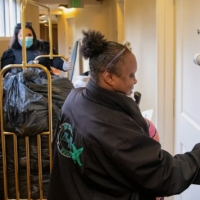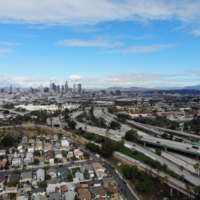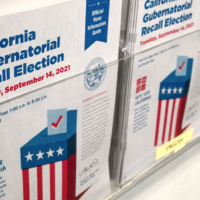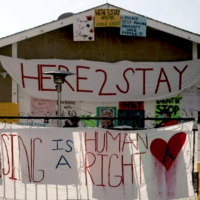Study Finds Inequities in Distribution of Federal Stimulus Assistance
Neighborhoods in California whose populations are majority Black, Latino or Asian benefitted less from the $500 billion in forgivable loans distributed nationwide through the Paycheck Protection Program amid the pandemic, according to a new UCLA report. The findings, published by the Latino Policy and Politics Initiative and the Center for Neighborhood Knowledge at UCLA Luskin, found that the lack of federal support will likely widen economic inequality in communities of color, which already had fewer small businesses and jobs than majority-white neighborhoods. The analysis was based on data from the Small Business Administration, the Census Bureau ZIP Code Business Patterns Dataset and the American Community Survey. The researchers write that future federal pandemic relief efforts should earmark a percentage of funds to directly benefit businesses in disadvantaged communities, which the report finds generally have higher concentrations of residents of color. The report found that stimulus funds helped majority-white neighborhoods retain 51% of their pre-pandemic jobs, compared to 44% in majority-Latino neighborhoods and 45% in majority-Asian neighborhoods. Although the program helped retain 54% of pre-pandemic jobs in Black neighborhoods, that figure is somewhat misleading because those neighborhoods typically had a smaller job base to begin with. When standardized on a per-resident basis, the federal loans supported 5.8 jobs per 100 residents in Black neighborhoods, compared with 8.1 per 100 residents in white communities. The authors also found that Latino and Black neighborhoods received less funding per capita than white neighborhoods. Latino neighborhoods received $367 per resident; Black neighborhoods received $445 per resident; white neighborhoods received $666 per resident; and Asian neighborhoods received $670 per resident, the study found.










Leave a Reply
Want to join the discussion?Feel free to contribute!